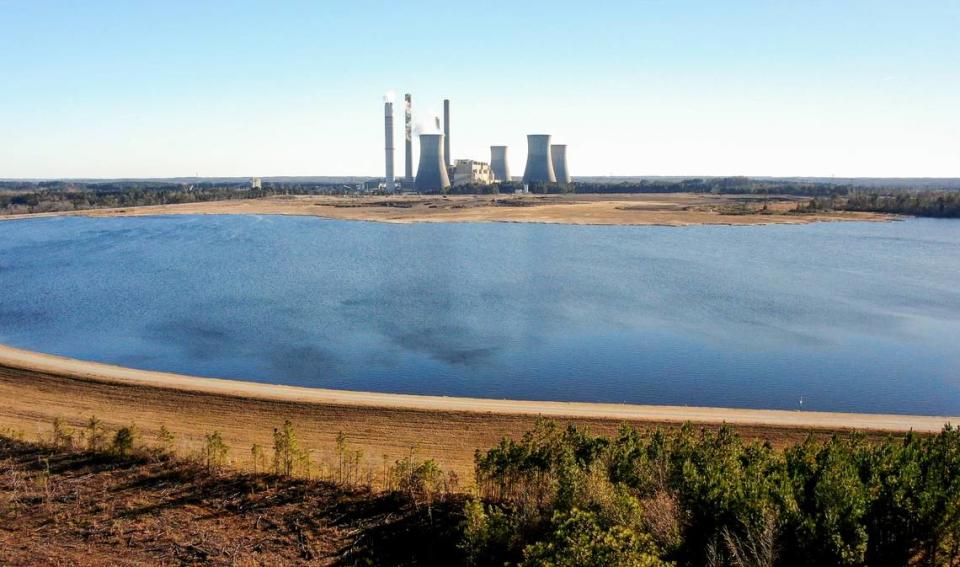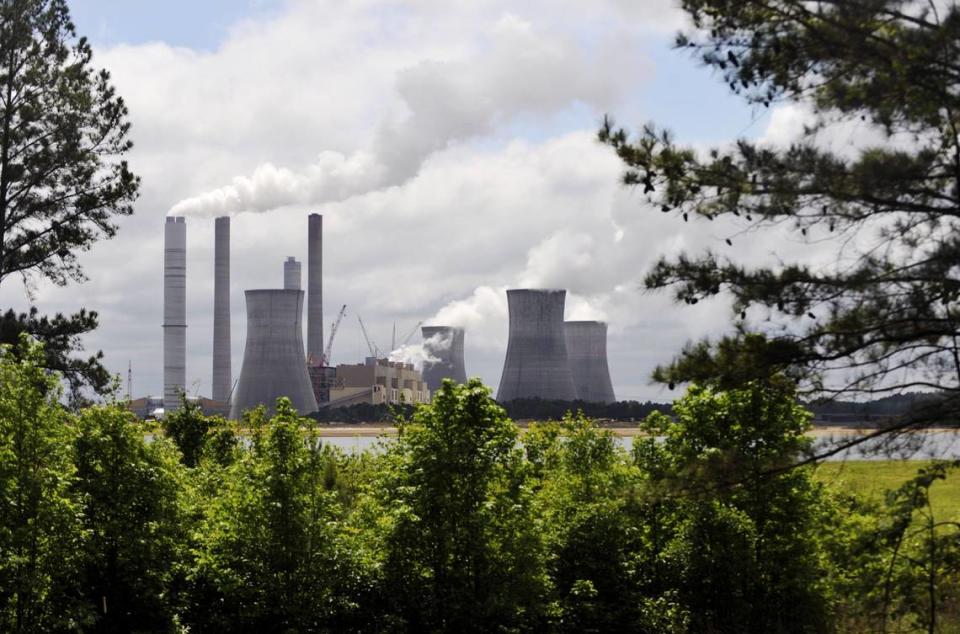EPA chooses people over utilities in rejection of Alabama coal ash plan. Is Georgia next?
The Environmental Protection Agency soundly rejected Alabama’s plan to permit power plants to dispose of toxic coal ash on Thursday, a possible warning to the Georgia Environmental Protection Division and Georgia Power.
For decades millions and millions of tons of the dirty an harmful coal power burning by-product, coal ash, has idled in ponds in unlined pits in Alabama and Georgia, threatening public health through groundwater contamination.
In 2016, the Environmental Protection Agency required state environmental agencies to manage utility coal ash clean-up permits.
This week, the EPA finalized its rejection of the Alabama Department of Environment (ADEM) permit application in August 2023.
ADEM outlined how Alabama Power would properly dispose of coal ash and ensure it doesn’t leech into groundwater or surface water. But the EPA found the permit out of compliance with federal law.
The EPA received 4,700 public comments supporting the denial of this permit over the last several months and after considering these comments they are following through with the denial, according to SELC.
North Carolina, South Carolina, and Virginia have all moved at least two-thirds of their coal ash to lined landfills or recycled into concrete, according to Frank Holleman, senior lawyer at Southern Environmental Law Center (SELC).
“Clean-up is happening in the Southeast, but Alabama is an outlier,” Holleman said. “ADEM is violating the law and not enforcing requirements with groundwater. They are not acting as protectors of people and clean water. They act as protectors of polluters, the utilities, but they have failed.”
Ripple Effects to Georgia
Coal ash is full of dangerous and harmful substances like arsenic, cadmium, chromium, lead, mercury. When sitting in an unlined water pond these toxins seep into groundwater and can cause cancer or other health issues.
Several lawsuits have been filed in Monroe County against utility giant Georgia Power. Georgia residents living near Georgia Power’s Plant Scherer claim contamination from drinking water resulting in illness and in some one case death.
A lawsuit was filed in January by the father of a Juliette resident who died of breast cancer in 2021. The suit claims his daughter Jodi Carter, an Army veteran who lived in Juliette, died from “exposure to contamination from radium, radon, gross alpha, gross beta, lead, and strontium” after drinking and bathing in contaminated well water near the plant.
Georgia is unique in that the Georgia Environmental Protection Division (EPD) is one of only three states in the U.S. with the authority to implement its own coal ash permit program, on the condition that the state’s requirements are as strong as federal law.
But, like Alabama, “Georgia suffers from many of the same problems that led to Alabama’s plan being denied, including allowing coal ash to sit in groundwater in perpetuity even after closure,” the Sierra Club of Georgia wrote in its press release.

In November, Georgia Power’s Plant Hammond was permitted by the Georgia EPD to close the coal ash pond, but SELC and other critics said it violated the federal rule of leaving ash in contact with groundwater. Here is the Plant Hammond plan
This permit denial in Alabama now sends a message, a “clear signal to Georgia”, the Sierra Club Georgia said.
“The Georgia EPD should take notice of the EPA’s decision and force utilities like Georgia Power to comply with federal regulations, and if it doesn’t, the EPA should revoke the EPD’s authority to approve these permits,” Gina Webber, Sierra Club Georgia Chapter Director said in a statement.
All of the unlined pits in Georgia (except for Plant Scherer near Macon) are upstream of the Chattahoochee.
“Communities around Newnan, Macon, and Rome are still being subject to this risk of pollution and possible catastrophic failure,” Holleman said. “If [adequate clean up] can be done in South Carolina and North Carolina, it can be done in Georgia. It’s time to finish the job in Georgia which has been left out of protection by Georgia Power.”


